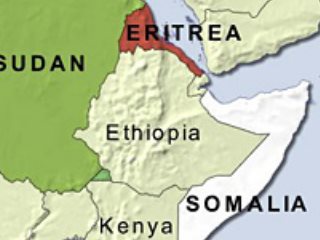Eritrea is Focus of Brussels Meeting
 International experts and politicians are in Brussels for a two-day meeting on ways to harmonize European and American policy on Eritrea and other parts of the Horn of Africa.
International experts and politicians are in Brussels for a two-day meeting on ways to harmonize European and American policy on Eritrea and other parts of the Horn of Africa.
The meeting is sponsored by Europe External Policy Advisors, a Brussels-based research group. It is being held amid mounting international concern about Eritrea's human-rights policy and allegations the Eritrean government supports Islamist insurgents in neighboring Somalia.
In August, U.S. Secretary of State Hillary Clinton warned the Eritrean government would face sanctions if it continued aiding Somalia's al-Shabab insurgent group, which allegedly has ties to al-Qaida. Eritrea denies arming the group.
Horn of Africa conference spokesman Abdulrahman Sayed says he hopes it will forge a consensus between the U.S. policy on Eritrea and the European Union one, which he describes as more open to dialogue with the Eritrean government.
"What we hope this conference [will] accomplish is to at least produce a guideline with some concrete recommendations by both the United States and European Union policy makers as well as other players like legislators and commissioners and also allow the civic society and political opposition figures in the diaspora to be engaged with those parties in the U.S. and the European Union to direct and influence their policy in Eritrea," said Abdulrahman Sayed.
While Eritrea is the focus of the conference, participants from neighboring Horn of Africa countries have been invited. Eritrea's internal problems, including widespread allegations of human-rights abuses, are spilling across its borders. Sayed says tens of thousands of Eritreans have fled to Sudan and Ethiopia. Others seek refugee status in Europe and the United States.
Conference participant Woldeyesus Ammar wants clearer from Europe and the United States. Ammar is chair of the Joint Leadership Committee, an umbrella organization of Eritrean opposition groups that plans to form a political party by the end of the year.
"Any action against the regime has not been cohesive," said Woldeyesus Ammar. "They [Europe and the United States] have been pointing fingers against the regime, but not doing more than that. It has been always talk, but no action. We want them to do some action now."
Organizers hope the Brussels talks will lead to a more active international policy toward Eritrea that possibly includes targeted sanctions against the government.


![[AIM] Asmarino Independent Media](/images/logo/ailogo.png)